30+ Sample Child Care Contracts
-
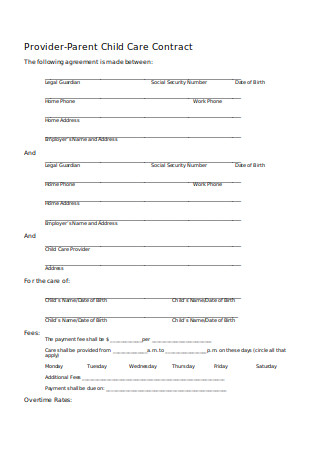
Parent Child Care Contract
download now -
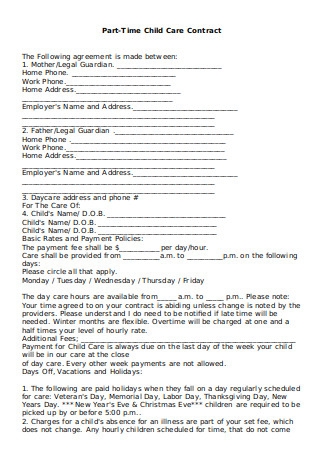
Part-Time Child Care Contract
download now -
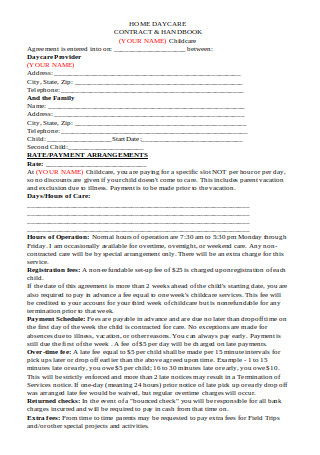
Home Daycare Contract
download now[/ns_li -
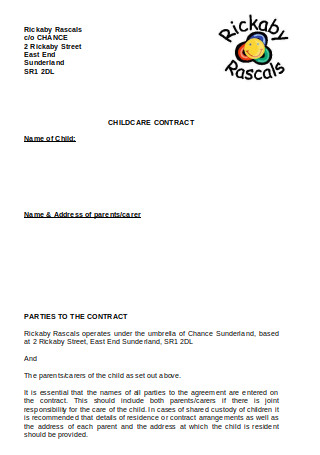
Child Care Contract
download now -
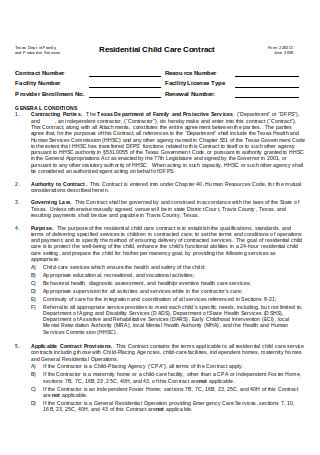
Residential Child Care Contract
download now -
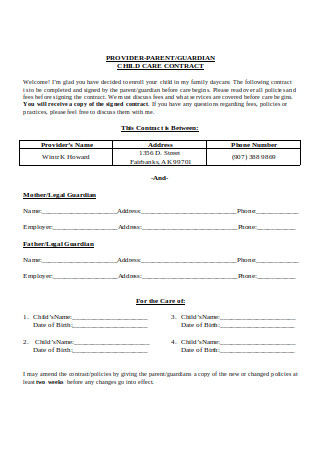
Guardian Child Care Contract
download now -
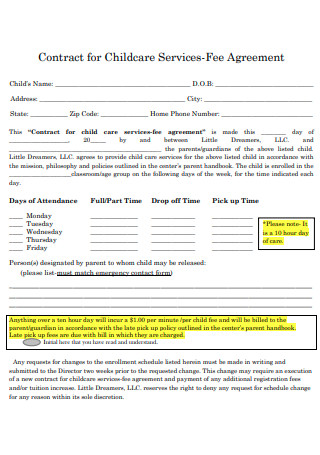
Contract for Childcare Services-Fee Agreement
download now -
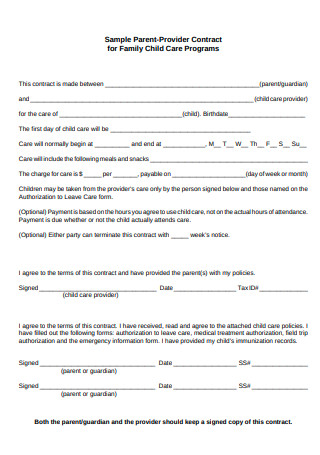
Contract for Family Child Care
download now -
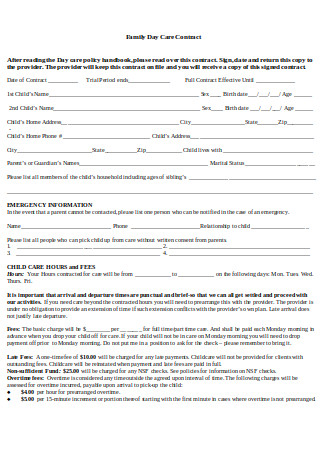
Family Day Care Contract
download now -
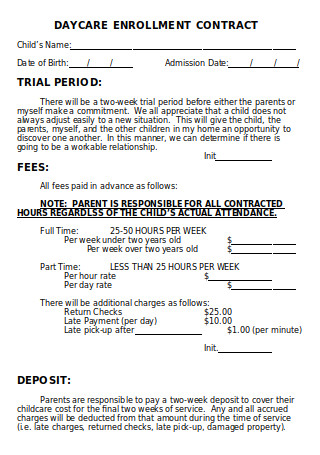
Daycare Enrollment Contract
download now -
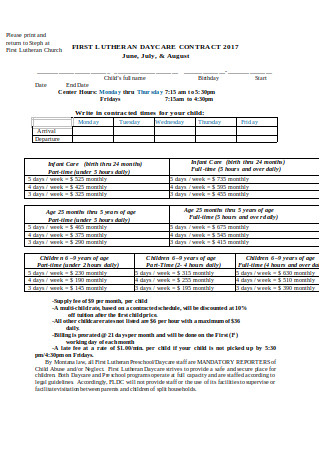
Day Care Contract in Church
download now -
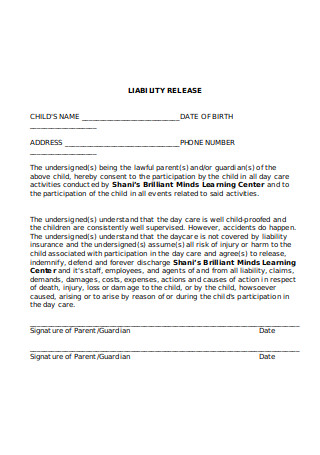
Parent Contract
download now -
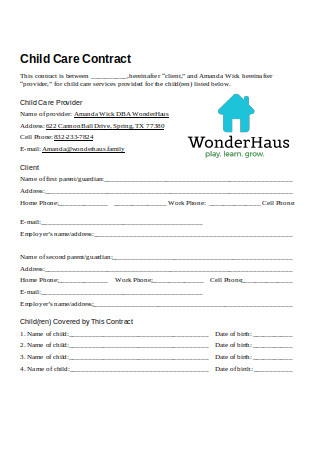
Child Care Parent Contract
download now -
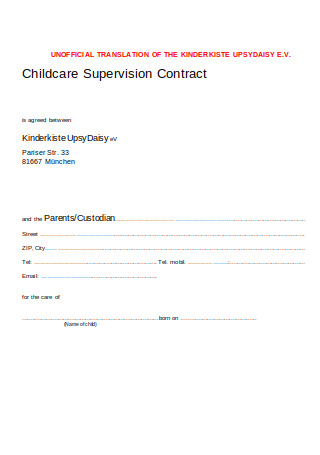
Childcare Supervision Contract
download now -
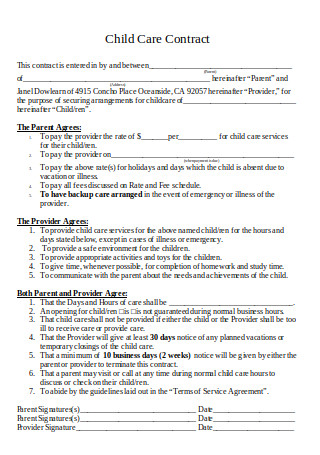
Standard Child Care Contract
download now -
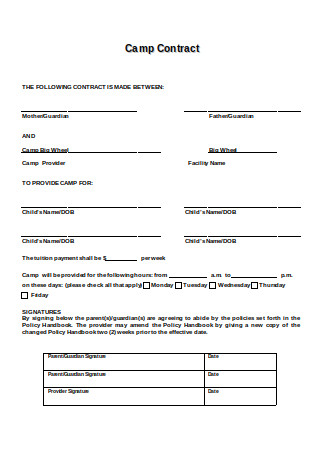
Preschool Childcare Contract
download now -
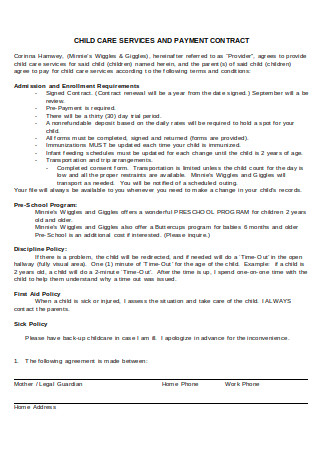
Child Care Services and Payment Contract
download now -
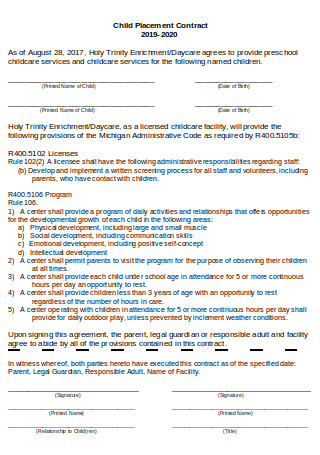
Child Placement Contract
download now -
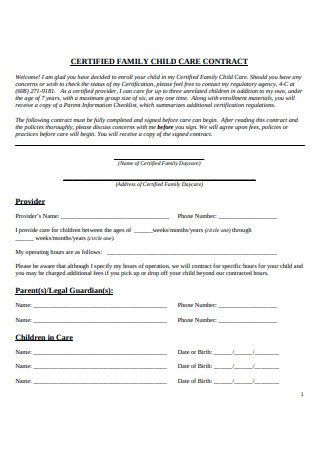
Certified Family Childcare Contract
download now -
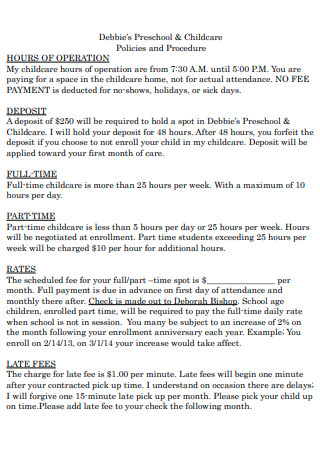
Preschool & Childcare Contract
download now -
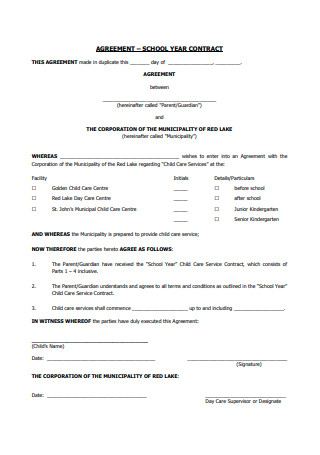
Child Care Service Contract
download now -
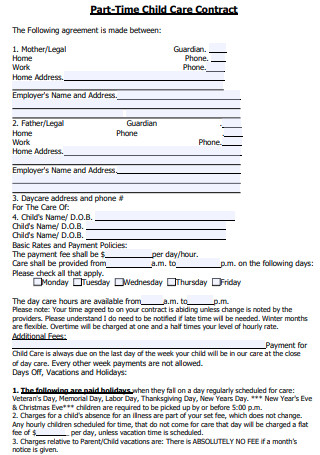
Part-Time Child Care Contract in PDF
download now -
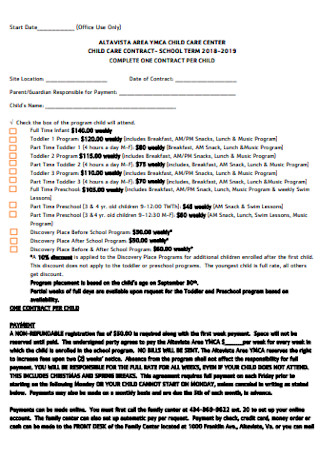
Childcare Contract Format in PDF
download now -
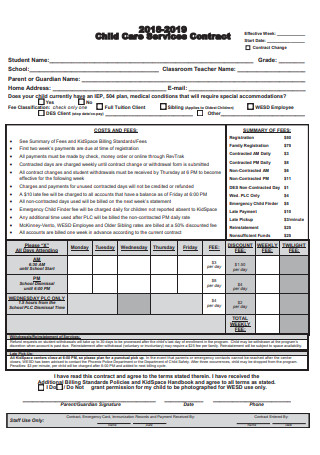
Child Care Services Contract Form
download now -
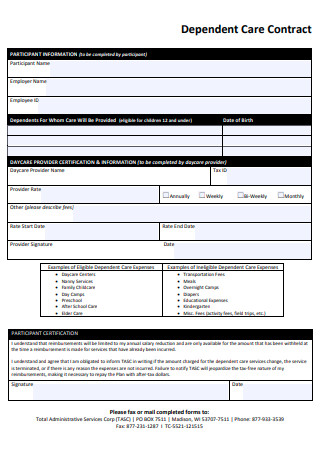
Dependent Care Contract Form
download now -
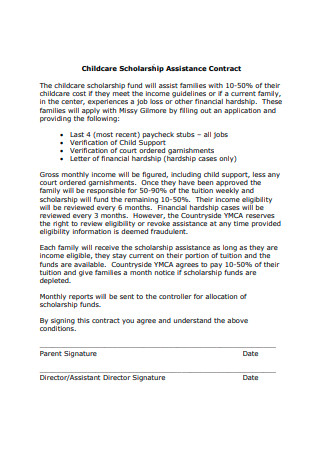
Childcare Scholarship Assistance Contract
download now -
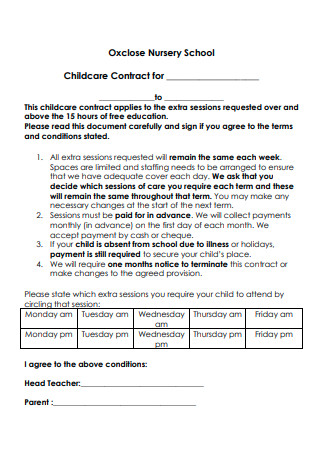
Nursery School Childcare Contract
download now -
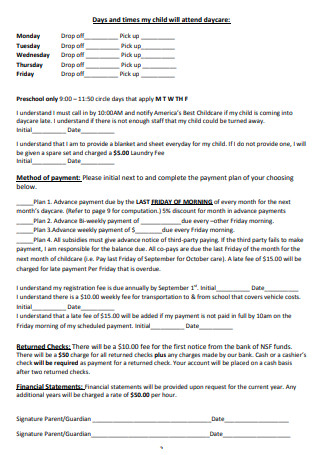
Daycare Contract Between Provider and Parents
download now -
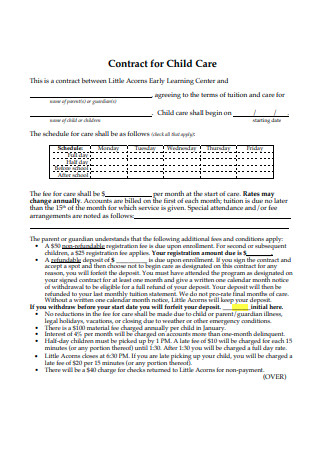
Contract for Child Care
download now
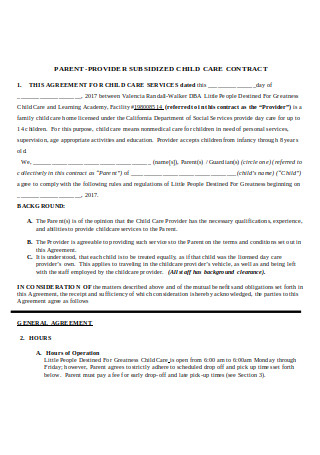
Parent-Provider Subsidized Child Care Contract
download nowFREE Child Care Contract s to Download
30+ Sample Child Care Contracts
What Is a Child Care Contract?
Child Care Policies
Different Types of Child Care
How To Write a Child Care Contract
FAQs
How soon can your child start daycare?
What’s the minimum wage for babysitters in the United States?
How do you differentiate a contract from an agreement?
What Is a Child Care Contract?
A child care contract is a document that states the agreement between a parent or a guardian and a child care provider. This aims to provide details on the services that your child will be receiving and provide more information on the program. A child’s welfare is a matter of great importance, so setting the right expectation and clearing out any misunderstanding is essential. The child care contract will be able to do that efficiently.
A child care contract can be used by anyone who wants to conduct a formal care agreement. It can be arranged by a parent or guardian and an institution that offers services such as after school and daycare programs. It is also applicable to less formal settings such as employing an individual nanny or babysitter where you want to set a clear outline of the terms and conditions.
The purpose of this contract is to provide all the necessary details of the arrangement and to ensure that every party understands what the service entails. Moreover, it will also be able to clearly define the payment agreement, applicable conditions for reimbursement, deposit details, and whether or not the provider has the right facilities to carry out their responsibilities.
Child Care Policies
A quality child care program will be able to provide you with a comprehensive copy of rules and policies. It’s important that parents are informed of what support an institution will give and what entailing conditions that their program has to offer to avoid complications. This way, a parent and a provider’s business relationship is established, and service satisfaction is guaranteed. Below are some child care policies that your service contract should have:
Different Types of Child Care
In 2018, Statista recorded 8.74 million children were enrolled in pre-primary schools in America. This comes with no surprise, as mothers whose children are minors take up 70% of the women’s working force. Whether it’s for work, the need for extra help, or a much-needed break, there’s a growing demand for child care programs to fit every situation. Below are several options that you can look into:
Day Care
A day care is a child care facility that provides half to full day’s worth of activities, depending on the program. It offers formal learning that can be expensive, depending on the location and services provided.
Nanny
Among the disadvantages of day cares is the drop off and pick up schedules, which can be grueling, especially for working parents or guardians. If you dislike the effort of traveling to and fro the day care center, a nanny may be a good option for you. They can be a stay-in employee or not, and their duty generally includes all matters concerning a child’s care.
Babysitter
A babysitter is someone you hire to take care of your child on an hourly basis. The babysitter can take care of your child in your own house or in his or hers, depending on your arrangement. They are an ideal hire for parent night outs.
Au Pair
An au pair is an individual living in a foreign country who comes to your house to offer stay-in child care. The family who will employ an au pair should provide food and lodging accommodations, as well as allowances.
Family Day Care
A family day care is also known as home day care where the services take place is someone’s home. It’s cheaper than actual day care and only accommodates fewer children.
Relative Care
Relative care is child care provided by a family member or a relative. This is more convenient because it’s someone that a family already knows.
Child Care Swap
A child care swap setting involves two or more families taking turns of watching over each other’s kids together with their own. This arrangement can be free and involves very friendly conversations with other parties, but a clear understanding must be established.
How To Write a Child Care Contract
A child care contract can have a long list of provisions and specifications, as it should. Supervising a child entails numerous responsibilities, and the agreements on the contract should be written in a manner that provides the best benefits for the child, offers an advantageous deal to the parents, and promptly compensates the provider for their efforts. Below are some ways on how you can efficiently make your contract:
1. Clearly Set Your Services and Policies
Before you can start drafting the content of your contract, take a closer look at your offered services and policies first. If you’re new to the child care industry, you might want to access your programs and examine the types of service you’re going to offer and the rules of your assistance thoroughly. This information is important because this will be an integral part of your contract. This includes the number of service hours as well as the resources that a provider needs to offer. Take note of which parts need to be approved by the client and put them all in an outline. This way, you’ll easily be able to create a complete copy of your contract because you have the information you need.
2. Specify Payment Terms
Money is a serious issue in contracts, which makes it a highlight in any agreement, whether it’s oral or written. When you begin writing your contract, compose your payment clause in exact details. State how the payments will be made and if it will be on a monthly or weekly calendar basis. It’s also important to note whether or not there will be additional compensation for the use of certain facilities or in the case of sickness and other situations. Include if there are grace periods when a client fails to pay on the set due date. Anything that concerns payment issues should be thoroughly and carefully addressed in this area.
3. Address Contract Termination
In business, “termination” has an undesirable tone. However, terminations are something that every contract must address. For child care contracts, parents backing out and choosing to take care of the children themselves are a common occurrence. There’s also the failure to fulfill payment obligations or when providers fail to reach their client’s expectations. State what steps the client will take if he or she wants to terminate the contract voluntarily. You should also establish what conditions will result in client termination and whether or not the client will be given the time to settle his or her issues, or the contract will be nulled immediately.
4. Be Detail-Oriented
A contract should be nothing less but detailed and accurate. You’ll want your clients to understand every part of the contract before he or she approves it. While some may passively skim through the document and sign the papers without in-depth assessment, but the majority of the people who’ll sign a contract will thoroughly go through every phrase and paragraph. This is a good practice to ensure that no hidden agenda is hidden between each clause. Carefully outline and layout the details for each part. Drop the legal jargon and use simple language to boost your contract’s legibility.
FAQs
How soon can your child start daycare?
Parents can admit their child to daycare when they’re more than six weeks old, but it’s highly recommended to wait until 12 months old.
What’s the minimum wage for babysitters in the United States?
All across the country, the average hourly rate of babysitters per child is $16.75.
How do you differentiate a contract from an agreement?
An agreement is an understanding between different parties that can be informal, unwritten, and not legally enforceable. On the other hand, a contract is a type of agreement that is formal and requires a written document where the parties can sign their approval. A contract is also legally binding.
A child care contract is beneficial in ensuring that a child is receiving the ample amount of needs and supervision that it needs away from his or her parent’s wings. It also contributes to a child’s development because a child care’s programs are geared towards not only attending to a child’s physical needs but also his emotional and social capacity as he gains the chance to mingle with other kids and other people outside his family’s circle.
